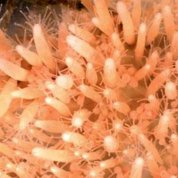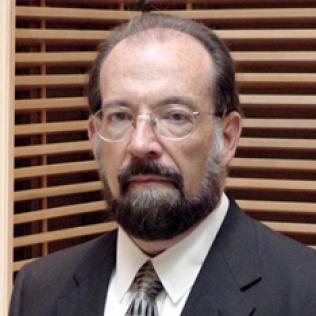
On the Cover
Hydractinia tentacles, close up. A little-known ocean-dwelling creature most commonly found growing on dead hermit crab shells may sound like an unlikely study subject for researchers, but this animal has a rare ability—it can make eggs and sperm for the duration of its lifetime. Called Hydractinia, the animal produces germ cells—precursors to eggs and sperm—nonstop throughout its life. Studying this unique ability could provide insight into the development of the human reproductive system and the formation of reproductive-based conditions and diseases in humans.
ANDY BAXEVANIS, NHGRI





